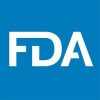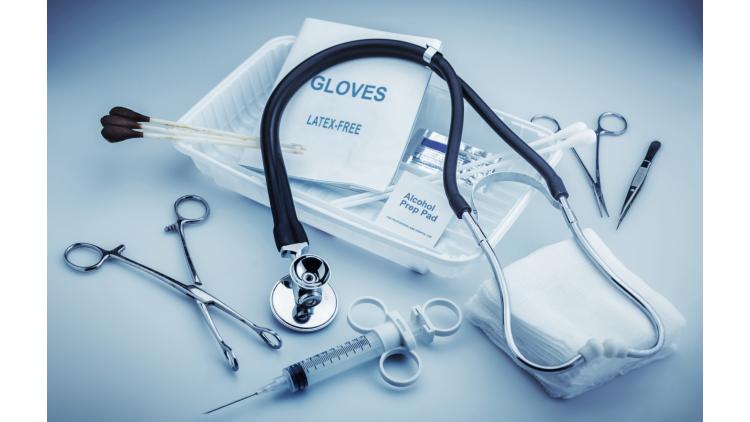The Food and Drug Administration (FDA), the US regulating authority, has updated the information materials dedicated to importing and exporting medical devices.

Importing and Exporting: the Basics
According to the general rule, the entity involved in the manufacturing of medical devices intended to be imported into the US should sustain compliance with the applicable requirements within all steps of the device’s lifecycle.
At the same time, medical devices that are allowed for marketing in the US could be exported without any additional approval. However, if the device intended to be exported was not duly registered and is not subject to any exemption, the appropriate procedure set forth by the Federal Food, Drug, and Cosmetic (FD&C) Act should be applied.

Documents for Exporting Medical Devices
The FDA has already developed a detailed FAQ document describing the most important aspects to be considered by the parties interested in exporting medical devices outside the United States. In particular, the scope of the additional information published by the Agency covers the aspects related to the documents necessary for exporting.
In accordance with the Export Reform and Enhancement Act of 1996, the FDA is entitled to certify the regulatory status of medical devices in the US. The Center for Devices and Radiological Health (CDRH) is the particular department responsible for the certificates to be issued for medical devices.
According to the official information published by the FDA, the types of certificates include:
- Certificate to Foreign Government,
- Certificate of Exportability 801(e)(1),
- Certificate of Exportability 802,
- Non-Clinical Research Use Only Certificate.
In order to obtain any of the aforementioned certificates, the interested entity shall submit the appropriate application to the CDRH. Under the general rule, it takes up to 20 business days for the CDRH to review the application and either issue the certificate requested or inform the interested entity about the denial. In case a positive decision was made, and the certificate has been issued, the entity shall pay the appropriate fee.
Certificate to Foreign Government (CFG)
A certificate to Foreign Government is the basic certificate to be issued for a medical device that has been duly placed on the US market and meets the requirements set forth by the applicable regulations. As it was already mentioned before, in such a case any additional exporting permit is not required.
The Agency also outlines the eligibility criteria for entities applying for a CFG, namely:
- The establishment must be registered with the FDA,
- The device must be listed with the FDA,
- The device must have a cleared Premarket Notification (510K), an approved Premarket Approval (PMA) Application (unless exempted by regulation), is a device that was on the market prior to May 28, 1976 (before the Medical Device Amendments to the FD&C Act), or was granted a De Novo classification,
- The device must meet the labeling requirements of Title 21 Code of Federal Regulations (CFR) Part 801 (21 CFR 801) or 21 CFR 809, if applicable,
- The device must be manufactured in accordance with the Quality System (QS) regulation of 21 CFR 820, unless exempted by regulation.
Moreover, the FDA provides the list of additional points to be considered when submitting a request for a CFG including, inter alia, the following ones:
- There should be no open recalls related to the medical device in question,
- Any and all manufacturing facilities should sustain compliance with the appropriate requirements.
It is also important to mention that earlier in November 2020 the FDA has already published a guidance dedicated to the procedures to be followed by the interested entity in case of denial to issue a Certificate of Foreign Government.

Certificate of Exportability under Section 801(e)(1) of the FD&C Act (COE 801)
Another document described in the FDA information materials on exporting medical devices is a Certificate of Exportability (COE) – a specific document to be applied for medical devices that are not allowed to be placed on the US domestic market, including the devices without the appropriate FDA approval or clearance. Such devices should be intended only for export outside the US.
According to the FDA guidelines, such devices could be allowed for exporting without obtaining any additional permission in case if all the criteria below are met, and the devices are:
- Assigned to either Class I or Class II under the risk-based classification,
- Manufactured in accordance with the specifications provided by the foreign purchaser,
- Compliant with the requirements applied in the country of destination,
- Containing the appropriate indication «export only» on the outer packaging, and
- Not distributed or in any way made available on the US domestic medical devices market.
The Agency also describes certain cases when medical devices that are subject to the 510(k) FDA clearance could be exported before the completion of the appropriate regulatory procedures. In particular, such devices could be exported even if the submission is still under review providing that the following preconditions are met:
- The medical device in question complies with the requirements set forth by Section 801(e)(1), and
- There are other medical devices with a similar design, composition, construction, and intended purpose already placed on the US market, hence, the applicant has reasonable expectations that the application would be approved and the device would be FDA-cleared.
Under the general rule, the interested party (exporter) intended to request a COE 801 shall duly register and list its medical device. Later the exporter would also have to sign and submit the appropriate statement in order to declare compliance with the requirements set forth under Section 801(e)(1) of the FD&C Act.
Certificate of Exportability under Section 802 of the FD&C Act (COE 802)
A Certificate of Exportability (COE) introduced by Section 802 is a document to be issued in the case of Class II and Class III medical devices intended to be exported, that are not approved by the FDA. This category also includes medical devices intended for investigational purposes, as well as ones failed to obtain the PMA approval.
The list of eligibility criteria for such devices is the same as the appropriate list to be applied for a COE 801 certificate as described above. At the same time, the Agency also mentions that in order to fall within the scope of the rule set forth by Section 802 of the FD&C Act, the medical device shall:
- Comply with the Quality System requirements or applicable international standard (providing that such standard is recognized by the FDA),
- Should not be adulterated, except the absence of the FDA approval or clearance,
- Should not create hazards to the country of destination,
- Should have the appropriate labeling.
The Agency additionally emphasizes the importance of sustaining compliance with the applicable requirements set forth in the country the medical device in question is intended to be imported to.
Non-Clinical Research Use Only (NCR) Certificate
The NCR Certificate should be applied in case if a medical device in question is not intended to be used for patients.
Summarizing the information provided here above, the additional information materials and FAQs published by the FDA address the most important aspects related to exporting medical devices and the document required depending on the particular type of medical device and its specific features.
How Can RegDesk Help?
RegDesk is a next-generation web-based software for medical device and IVD companies. Our cutting-edge platform uses machine learning to provide regulatory intelligence, application preparation, submission, and approvals management globally. Our clients also have access to our network of over 4000 compliance experts worldwide to obtain verification on critical questions. Applications that normally take 6 months to prepare can now be prepared within 6 days using RegDesk Dash(TM). Global expansion has never been this simple.
Sources:
https://www.fda.gov/medical-devices/exporting-medical-devices/types-export-certificates

